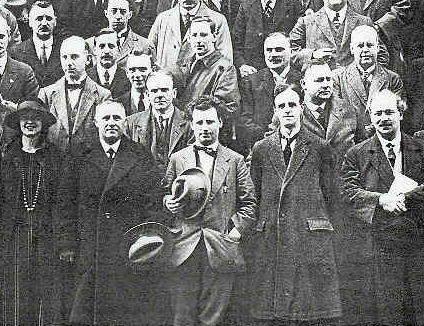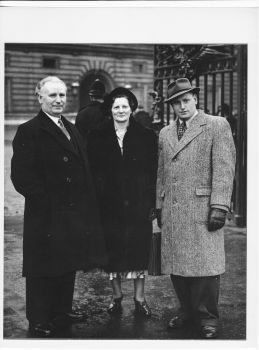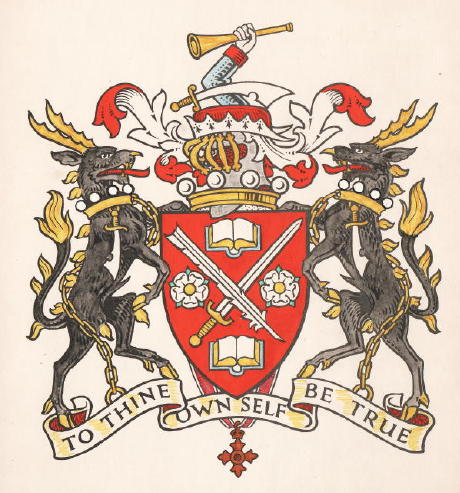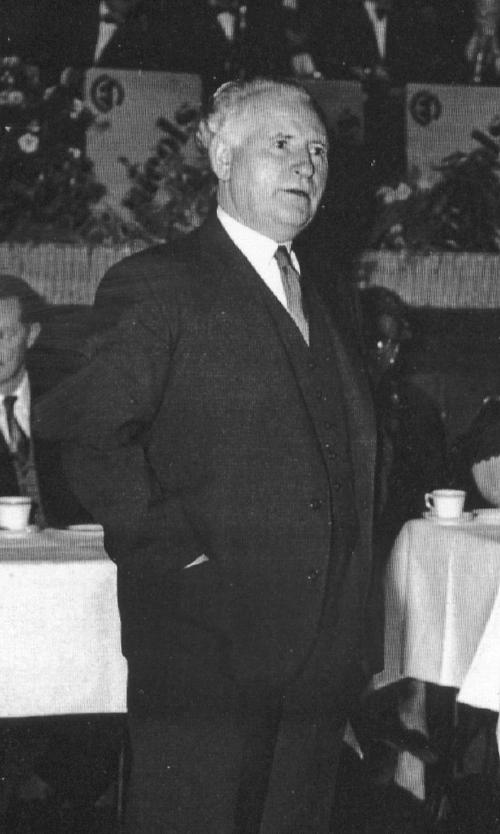ACHIEVEMENTS
Charles Leatherland led a long and successful life.
His mother died when he was a young boy, and family circumstances and the need to earn his living obliged him to leave school at the age of 14. Despite this, he became a prolific and self-taught shorthand writer, a soldier, a successful journalist, an expert in local government affairs, a 'country squire' and fox hunter, a magistrate, and a Life Peer.
He claimed to be the youngest company sergeant major in the First World War. After the war, he was one of the founder members of a national organisation to improve the plight of ex-soldiers.
In the 1920s he played important behind the scenes roles in Labour Party head office and during the General Strike. He won national essay competitions and was the backbone of the Daily Herald for very many years as well as being a prolific freelance journalist.

Charles Leatherland (centre holding hat) at National Union of Journalists Conference 1921
Charles Leatherland did more than anyone else to ensure that Essex benefitted from the creation of a new university in the 1960s. University publications describe him as its founder. He dispensed justice as a magistrate for over 30 years, and chaired the local Parish Invasion Committee during the Second World War.

Leatherland with wife Mollie and son John at Buckingham Palace when awarded OBE
In the 1940s the Labour Party asked him to stand for Parliament as an MP. This would have meant financial and career sacrifices, and he reluctantly declined the offer. His later career in the Lords shows that he would have made a fine MP. He was still attending the House of Lords at the age of 90.

Lord Leatherland's Coat of Arms
Some of his claims may be taken with a pinch of salt ....
- Was he really the youngest company sergeant major in the First World War ?
- Did he really have tea with the Kaiser's sister in 1919 ?
- Did he really teach himself to type by looking through the window of a typewriter shop and memorising the keyboard ?
But one thing is for sure : Charlie Leatherland was a true self-made man who overcome a tough start to life and played a major role in paving the way for the Labour governments of the 1960s and 1970s.
